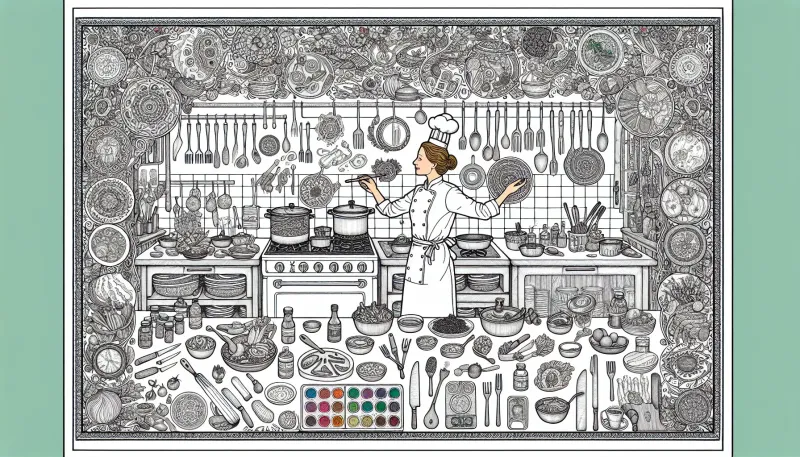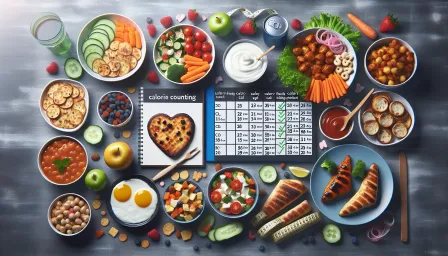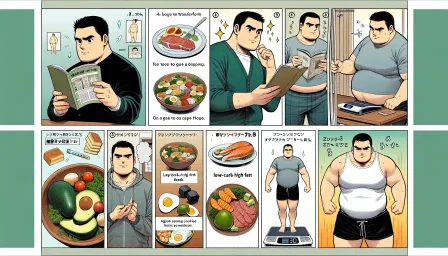Mastering Cooking at Home and Culinary Skills: A Comprehensive Guide

Comprehensive guide to mastering cooking at home and enhancing your culinary skills. Learn techniques, tips, and recipes to become a kitchen pro.
Cooking at home is not just a daily necessity; it’s also an art form that can bring immense personal satisfaction. By mastering culinary skills, you can elevate your home-cooked meals to restaurant-quality dishes. This comprehensive guide will help you understand the various aspects of cooking, from basic techniques to advanced skills that can transform your kitchen experience.
The Importance of Cooking at Home
The rise in popularity of home cooking can be attributed to numerous factors such as health benefits, cost savings, and the sheer joy of creating something from scratch. Home-cooked meals often contain fewer calories and less sugar, fat, and salt compared to restaurant meals. Additionally, cooking at home provides you with control over the ingredients, allowing for healthier choices and personalized flavors.
Essential Culinary Skills
To truly master cooking at home, it is essential to build a foundation of culinary skills. The following are fundamental techniques every home cook should master:
1. Knife Skills
Proper knife technique is crucial for efficiency and safety in the kitchen. Start by learning how to hold a knife correctly and practice basic cuts such as chopping, dicing, and julienning. Keeping your knives sharp is also important to ensure clean cuts and reduce the risk of injury.
2. Sautéing and Stir-Frying
Sautéing involves cooking food quickly in a small amount of oil over high heat. This technique is perfect for vegetables, proteins, and even some grains. Stir-frying is similar but often involves continuous movement of ingredients in the pan, ideal for creating complex flavors quickly.
3. Boiling and Simmering
Understanding the difference between boiling and simmering can greatly impact your cooking outcome. Boiling is a rapid and aggressive movement of water at 212°F (100°C), ideal for cooking pasta and blanching vegetables. Simmering, on the other hand, occurs at 185°F to 205°F (85°C to 96°C) and is used for cooking stews, broths, and sauces gently.
4. Baking and Roasting
Baking and roasting are dry heat cooking methods that use an oven. Baking typically refers to cooking bread, pastries, and other items, while roasting is generally used for meats and vegetables. Mastery of these techniques can result in evenly cooked, flavorful dishes.
Advanced Culinary Skills
Once you’ve mastered the basics, advancing your culinary skills can open up new dimensions in your home cooking:
1. Sous Vide Cooking
Sous vide is a method of cooking vacuum-sealed food in a temperature-controlled water bath. This technique ensures precise cooking, retaining moisture and flavor. While it may seem daunting, sous vide devices have become more accessible and user-friendly for home cooks.
2. Fermentation
Fermentation is an age-old process that transforms simple ingredients into complexly flavored foods like kimchi, sauerkraut, and yogurt. Understanding the science behind fermentation can elevate your culinary prowess and offer probiotic-rich health benefits.
3. Plating and Presentation
The visual appeal of your food can make a significant difference in the dining experience. Learning plating techniques such as symmetry, balance, and the use of garnishes can make your home-cooked meals look as good as they taste.
Essential Kitchen Tools
Having the right tools is crucial for mastering cooking at home. While a fully equipped kitchen is ideal, there are some essential tools that every cook should have:
1. Chef’s Knife
A good-quality chef’s knife is the workhorse of the kitchen. It’s versatile enough for most cutting tasks, making it an indispensable tool.
2. Cast-Iron Skillet
Cast-iron skillets are durable, hold heat well, and can be used on the stove and in the oven. They are perfect for searing, sautéing, and baking.
3. Digital Thermometer
A reliable digital thermometer ensures that your meat and poultry are cooked to the right temperature, enhancing both safety and flavor.
4. Food Processor
A food processor can save you time and effort in chopping, slicing, and pureeing ingredients, allowing for more efficient meal preparation.
Recipe Development and Understanding Flavors
Creating your own recipes can be a rewarding experience. Understanding flavor profiles and balance is key:
1. Balance of Flavors
Most great dishes have a balance of the five basic tastes: sweet, sour, salty, bitter, and umami. Experiment with different combinations to achieve the perfect taste.
2. Herbs and Spices
Herbs and spices are the backbone of flavorful cooking. Learning how to use them correctly can transform ordinary ingredients into extraordinary meals.
3. Ingredient Pairing
Some ingredients naturally complement each other. For example, tomatoes and basil, or chocolate and chili. Understanding these pairings can enhance the complexity of your dishes.
Tips for Efficient Cooking at Home
Efficiency in the kitchen is important for saving time and reducing stress. Here are some tips to keep you organized and efficient:
1. Meal Planning
Plan your meals for the week to avoid last-minute decisions and reduce food waste. This also helps in making grocery shopping more efficient.
2. Mise en Place
Mise en place is a French term for having all your ingredients prepared and organized before you start cooking. This keeps your workflow smooth and efficient.
3. Batch Cooking
Consider batch cooking meals and freezing portions for later use. This saves time during busy weeks and ensures you always have homemade meals on hand.
Conclusion
Mastering cooking at home and culinary skills is a worthwhile endeavor that pays off in healthier, tastier, and more personalized meals. From honing basic techniques to exploring advanced methods, and having the right tools, anyone can elevate their home cooking to new heights. Use this guide as a roadmap to enhance your culinary journey and enjoy the process of learning, experimenting, and savoring your creations.



























